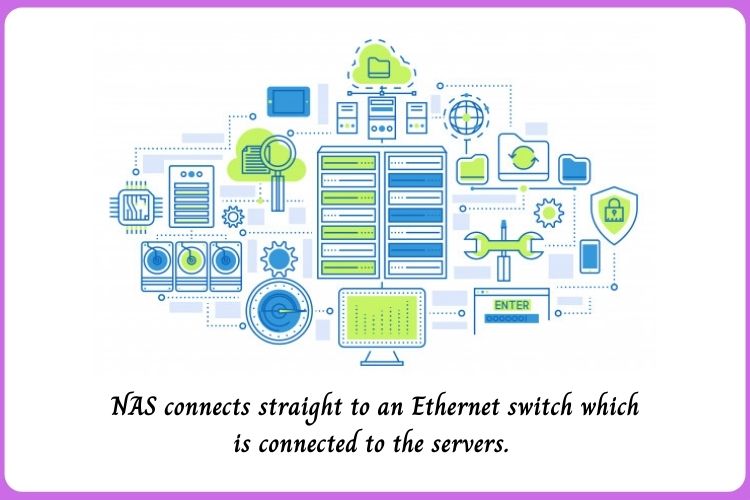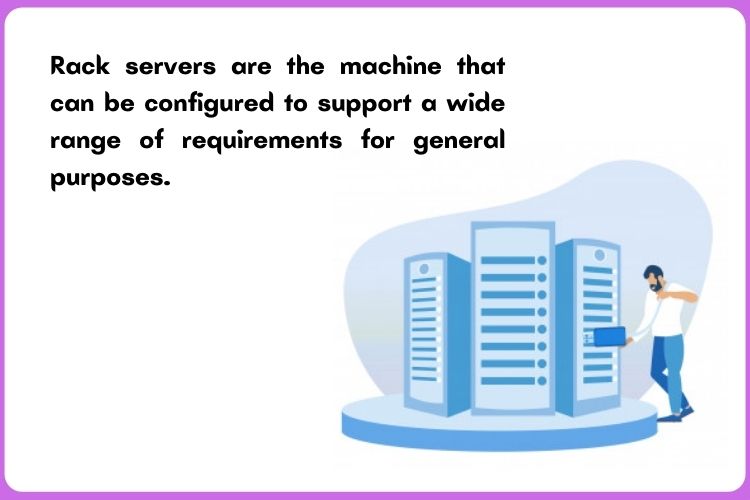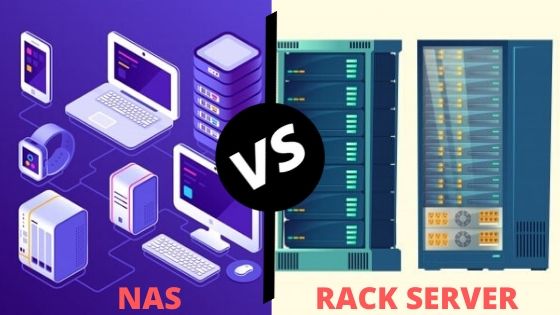Table of Contents
Data storage is a dynamic part of any enterprise because it’s authoritative to distribute data rapidly and securely backup the vital data of the business. As your business grows, so does your need for more cultured storage amenities, especially when you have employees who require access to huge amounts of information in the office and off-site.
Here we’re explaining two types of data storage servers.

What is a NAS server?
NAS stands for Network Attached Storage. NAS is a file-level access storage construction associated with a network that enables several users and diverse client devices to recover data from central disk capacity. NAS connects straight to an Ethernet switch which is connected to the servers. Users on a Local Area Network (LAN) can obtain the shared storage from the NAS via a quality Ethernet connection.
NAS devices deliver infrastructure to combine storage in one place and to support tasks, such as archiving and backup and a cloud tier. NAS devices usually have some kind of built-in operating system which includes software functions like native media streaming, printer streaming, or remote access, unlike the traditional external hard devices.
What are the advantages of NAS?
- It is smaller than servers, hence taking very less space in the office.
- It is very cost-effective than the servers.
- NAS devices can be used to host candidates as it is easily accessible.
- NAS devices are used to automatically create locally stored backups of your business data.
- File sharing and collaboration among users are more simplified in NAS.
What are the disadvantages of NAS?
- NAS is dependent on LAN, so if the LAN goes down, so will the NAS.
- You have a limited number of downloads of applications available with the NAS operating system.
- The speed of the computer network may be affected as the NAS uses a large amount of bandwidth.
- NAS device lacks the installation of third-party software. Users are allowed to choose from one of their own applications only.
- It lacks security and anyone can access it.

What is Rack servers?
A rack server also called a rack-mounted server, is any server that is built precisely to be mounted within a server rack. Rack servers are machines that can be configured to support a wide range of requirements for general purposes. They are most usually found in data center environments but can also be used in smaller computer garrets.
On when one hand old-style servers looked much like a PC, but a rack server is wider. So it can be protected into the rack using mounting screws or rails, according to the design. If you only require a small number of servers, they are the best choice economically due to the lower costs.
What are the advantages of Rack servers?
1.
Rack servers operate as a stand-alone, all in one system with all the needed components. These are very powerful and are used to run powerful high-end applications.
2.
It is very convenient as it is easy to mount a server within a rack and it saves a lot of space too as compared to the traditional tower-style server.
3.
Cooling the rack server is easier than all as it has internal fans equipped and placing them in a rack increases airflow.
4.
Rack servers are best when you need more than one server (but less than 10) because they don’t require an enormous chassis.
What are the disadvantages of Rack servers?
1.
In the rack server, each server needs network cabling and power cord wiring. The cables behind the cabinets seem very messy.
2.
The choice of the server should be based on the space needed and your outlay of future plans.

Conclusion
Which is better: a NAS or a Rack server? The amount of space you have available, the investment you want to make in data security, and how expandable you want the storage to be would all factor into whether you store and backup your data on a Rack server or a NAS device.
Overall when deciding between a NAS and a Rack server, it’s important to understand both your present and possible future needs. To know more in detail visit Serverstack.
Frequently Asked Questions
Q1. Why is it called a Server?
A computer program or process is referred to as a server. It refers to a system that runs one or more server programs via metonymy. A system like this is referred to as a host on a network.
Q2. What are Rack servers used for?
Rack servers, like all servers, offer data and resources to clients. They’re usually found in data centers with dozens, if not hundreds, of server racks and cabinets. Rugged rack servers are commonly found supporting military and industrial applications in the field.
Q3. What is the difference between NAS and Server?
NAS devices are smaller and offer fewer functions than a normal server. Because of the size variation, NAS devices are most commonly used by small and medium-sized organizations. Servers are significantly more customizable and have greater power.







